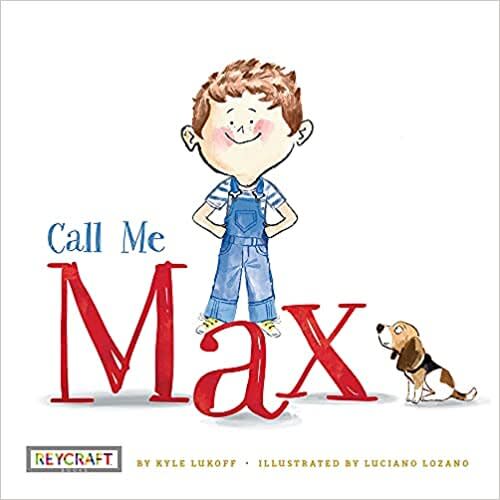11 Recently Banned Books—And What Book Bannings Really Mean for Our Kids
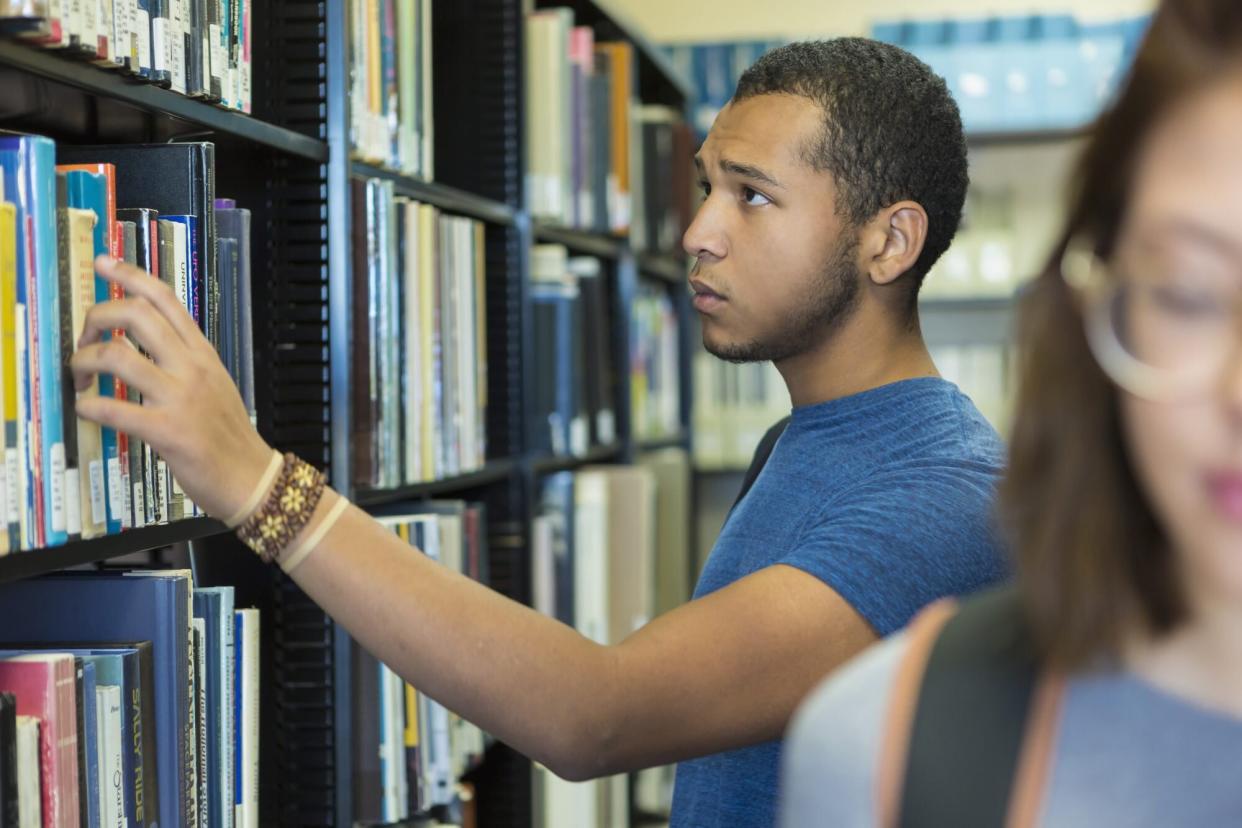
Book challenges are not new to school and public libraries, but recent bans have been unprecedented in number and scope. The American Library Association's Office of Intellectual Freedom received 330 book challenge reports from September 1 to December 1, 2021—more than twice the number of reports for the entire year of 2020. But why?
"We're at an inflection point in our society," says Emily Knox, associate professor in the School of Information Sciences at University Of Illinois, Urbana-Champaign. "We do not have an agreed upon way of telling our history. We're deciding how we talk about our history, what it means to be a good citizen, and what we want kids to know about our history."
Knox draws a connection between the Black Lives Matter uprisings of summer 2020 and recent news. "[Young people] live in a very different society than the society that adults like me grew up in," she says. "Those protests were in tiny white towns around the country. Where did those kids get those ideas? How are they understanding their world? What are they learning in schools? You can imagine that was very disturbing to some parents."
RELATED: LGBTQIA+ Books Are Under Attack as More Bills and Bans Take Them Out of Libraries and Classrooms
Ashley Hope Perez, author of Out of Darkness and professor of world literatures at Ohio State University, also stresses the present-day stakes of such bans. Out of Darkness has been challenged repeatedly in her home state of Texas. "I'm livid at the thought of parents attacking the kinds of books that authors like me have fought so hard to get on those shelves," she says. "They're taking away access and representation, and [sending] messages of exclusion. If a person shows up to a school board meeting waving a book and calling it 'filth,' because it shows a boy having a same-sex attraction, what does that say to kids who share that character's identity? It's 'We're going to clear away what you've tried to bring into these spaces to say that you also belong, and we're going to reclaim this space.'"
By putting restrictions on who gets to claim shelf space, school boards are telling marginalized kids—especially those who are LGBTQ+ and/or kids of color—that their very existence is invalid. That's exactly what these book bans are meant to imply.
Young activists say that challenges and bans twist history for political gain. Jack Lobel is a high school student from New York and communications director for Voters of Tomorrow, a Gen Z-led non-profit that engages and represents young people in politics. "These texts inspire conversations around 'uncomfortable' subjects—that's the reason that [people are] attacking these books in particular," he says. "When these texts aren't taught to us, we're losing out on conversations that have the potential to inspire real positive change in our communities."
Voters for Tomorrow recently launched a campaign to distribute hundreds of copies of Toni Morrison's Beloved and Art Spiegelman's Maus, the latter embroiled in a ban in Tennessee that has brought renewed attention to issues of freedom of information. And teachers, librarians, kids and parents are all pushing back, too.
Such bans also have a chilling effect on lesser-known authors, most of whom are also BIPOC and/or LGBTQ+ and whose works are not as canonical as Morrison's or Harper Lee's. "This kind of action can stop a career before it even starts," says Perez. "Because you don't get school visits. Teachers and librarians may be wary of ordering a book in the future, and it's really harmful. It restricts access to the amazing readers who desperately want to read those books."
Knox and Perez encourage parents to become more involved in their local public schools. "You can go to a board meeting even if there's not a controversy; your kids are also welcome to go," says Knox. "This is just good civic behavior."
"It's really important that folks speak up and say, 'I am part of this community. My kids' teachers and librarian are partners. I want my kids to wrestle with tough issues," adds Perez. "People should be thinking about what's at stake, if this is who gets to drive educational decisions in their community."
Another way to help: request, buy, and read challenged books—because more than ever, creating access is critical. Here are 11 recently banned titles that you can put on shelves now.
All Boys Aren't Blue
George M. Johnson's memoir All Boys Aren't Blue, about growing up Black and queer in New Jersey, deals with homophobia, transphobia, and racism. It has been targeted for removal in at least 15 states. "The book does have two sections where I do describe sex, which is the time I was sexually abused as a 12-year-old and my first time losing my virginity," the author told Democracy Now. "Both of those chapters are really teaching about consent, about agency, giving students the language to understand their bodies, to understand the power they have."

Gender Queer
The Alex Award-winning graphic novel Gender Queer details Maia Kobabe's journey of identifying as nonbinary and asexual, and was challenged in the Wake County Public Library system in North Carolina in December after complaints that it was "pornographic." "Queer youth are often forced to look outside their own homes, and outside the education system, to find information on who they are," Kobabe wrote in The Washington Post. "Removing or restricting queer books in libraries and schools is like cutting a lifeline for queer youth, who might not yet even know what terms to ask Google to find out more about their own identities, bodies and health."

Lawn Boy
Lawn Boy, by Jonathan Evison, is also an Alex Award-winner—the honor is given annually to books that are written for adults that have special appeal to young adults. But a Texas parent complained that this coming-of-age novel about a Mexican American character's journey to understanding his own sexuality and the proverbial American Dream contains "profanity, pornography, gambling, homosexuality," and encourages "admiring people with low morals and values, and hate of other people." "I'm glad that the book has been reinstated," Evison told The Washington Post in November, when both Lawn Boy and Gender Queer were returned to shelves in Fairfax County, Virginia, after a school board review deemed them worth of literary merit for kids. "I hope it will continue to inspire and comfort young adult readers who have been marginalized economically, racially, or by virtue of their sexual identification, so that these young people might find their rightful place within the large culture."

The Hate U Give
Angie Thomas's book The Hate U Give—inspired by the Black Lives Matter movement and about a teen girl who is the only witness to her friend's fatal shooting by a police officer—is perpetually challenged. The book is currently under discussion in an Oneida, Illinois school district for containing "too many expletives." But Thomas told Entertainment Weekly that there's clearly another reason for the book's frequent bannings. "Honestly, there is a fear among some parents—I'll just say it: white parents—who say, 'I'm not sure my child is ready for this.' The fact is, Black parents are [needing] to have these conversations with their 9- and 10-year-olds about the subject matter in this book. I need white children to be aware of that."

Out of Darkness
Ashley Hope Perez's novel Out of Darkness, set during the 1937 New London school explosion in East Texas, is a loose-retelling of Romeo and Juliet. Here, a Mexican girl and Black boy fall in love, breaking laws and social norms regarding interracial romance at the time. The book was recently removed from shelves in Forsyth County in Georgia for "explicit content." "I think, in this moment when marginalized teens are already struggling, it's imperative that we send a message of inclusion, not of exclusion," she told Utah's KUTV. "When you say this book doesn't belong in our libraries, you're one step away from saying kids with identities like these don't belong in our schools. And that's a dangerous message."
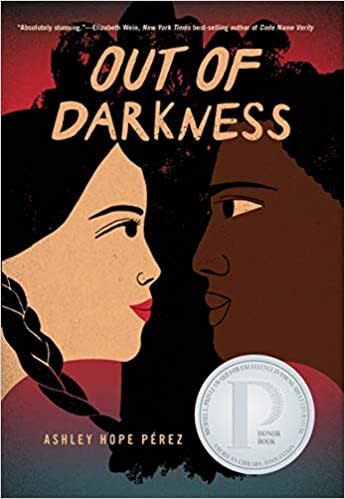
What Girls Are Made Of
Elana K. Arnold's What Girls Are Made Of was a National Book Award finalist, and is described as a "challenging work [that] invites readers to look within themselves and explore their own identities and imperfections," by the foundation's judges, who noted that, "a strong backbone of feminist mythology gives the novel an extra layer of depth and pain." It's on a lengthy list of books being challenged in Texas for its mentions of abortion and "multiple descriptions of sex."
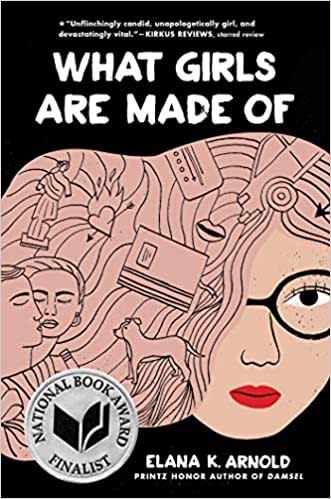
l8r, g8r
Lauren Myracle's novel l8r, g8r, the third in a popular series told entirely in texts, was recently challenged by Utah parents because "it includes drug use and an inappropriately flirtatious teacher." In Indiana, the same book was recently challenged for "detailed information about oral sex." "Give your kid some credit for being smart—just because they read about something doesn't mean they will do it," she told The New York Times in 2012; her books have been under fire for decades. "Fiction is a safe place to explore."
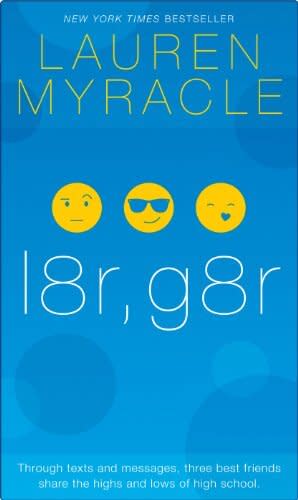
Melissa
Melissa, like The Hate U Give, often also appears on the ALA's "top most challenged lists." It's about a a fourth-grade transgender girl who struggles with how others see her, and has been challenged, banned, and restricted for "conflicting with a religious viewpoint" and not reflecting "the values of our community." "When I write a book about someone who is transgender…just simply someone who is transgender—they're not doing anything, they just are transgender— and that book gets banned? That is my existence being so scary and so reprehensible and so monstrous, that I cannot be shown to children," author Alex Gino told Yahoo!Life last September.
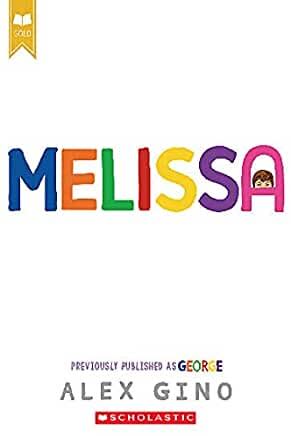
Dear Martin
In Nic Stone's novel Dear Martin, a Black teenager struggles to deal with racism in his community while trying to follow the teachings of civil rights icon Martin Luther King, Jr. The book was removed from a North Carolina high school library for "a lot of language, a lot of sexual innuendos, a lot of things that are concerning to me as a parent that's being presented to my child as a text." Stone responded to the removal in the Smoky Mountain News: "I don't fault the parents at all. We're all just trying to do our best when it comes to raising our kids. I would just hope that they would be willing to read beyond the first chapter just to see what's actually in there."

Anger Is A Gift
Mark Oshiro's debut Anger Is A Gift examines sexual orientation, gender identity, religion, race, and ethnicity in inner-city Oakland, and was the recipient of the 2019 Schneider Family Book Award for Teens and a nominee for the 2019 Lambda Literary Award for LGBTQ Children's/Young Adult. The book has faced challenges in Texas, and in Missouri as an "[example] of pornography." "A small minority [of teachers and librarians] feel that you shouldn't give books that are challenging or difficult or upsetting to kids because they don't want to expose them to ideas that inherently make their lives worse," he told the website Culturess. "But I think about how I wrote this book for those kids who don't have a choice about the difficult adult decisions they had to make."
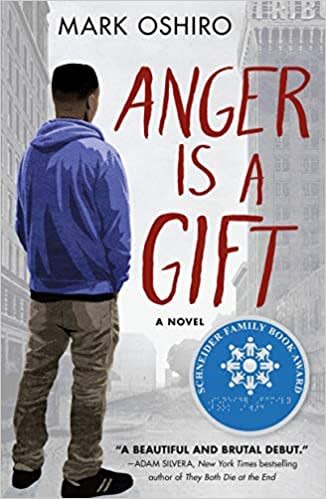
Call Me Max
Even books for the very young are being challenged. A Texas school district banned Kyle Lukoff's Call Me Max, a picture book about a transgender child, after a teacher read the book aloud to a group of fourth-grade students. "I find in my experience that adults think that term unlocks a lot of confusion in children when it really doesn't," Lukoff, who recently received a Newbery Honor for his middle grade novel Too Bright to See, told The Salt Lake Tribune. "It's only a problem if you think that being transgender is itself wrong. And it's not. That's something the parent then has to work through."
